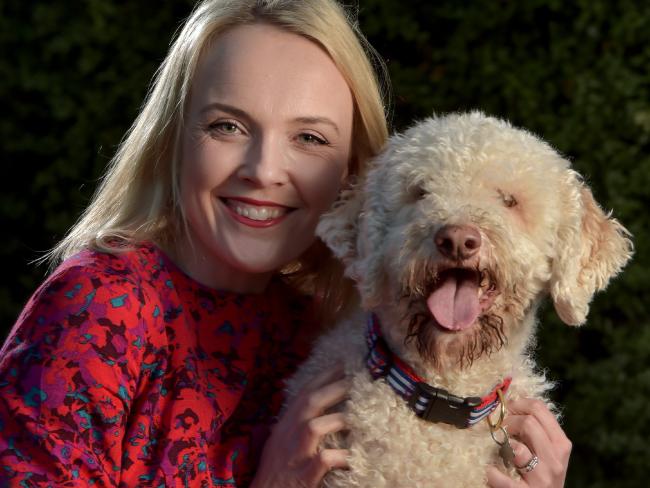DR Sarah Saxton works every day to identify other people’s cancer, but it still took more than six months for her own disease to be diagnosed as she was instead told she was suffering depression, coeliac disease and anaemia.
Fortunately her bowel cancer was eventually caught in time. But, as new research shows Dr Saxton’s is one of many who suffer long delays in diagnosing the disease, she is speaking out to save others.
A new national study of Australians diagnosed with bowel cancer has revealed that although three quarters went to their GP with symptoms, one in five said they were not taken seriously and their concerns were initially dismissed.
While working as a pathologist at The Alfred in 2008, Dr Saxton began suffering which were passed off as a range of other conditions by her GP over months of consultations.
Then, when her usual GP was away, a locum doctor finally ordered a colonoscopy which revealed her bowel cancer.
“I was dealing with these tissue specimens every day and I would think about how terrible it would be to be one of these patients,” Dr Saxton said.
“It was quite ironic the way I found out. I woke up from the anaesthetic having had the colonoscopy and the gastroenterologist showed me a picture of the cancer, and my job is to look at these cancers every day so I instantly knew what it was.
“I was in disbelief. I went through this whole list of tumours that are more common in younger people like melanoma, but I knew it was … I was in complete shock.”
New Bowel Cancer Australia figures indicate almost one in five of its 300 survey respondents were initially misdiagnosed, with many told their symptoms were something else, including irritable bowel syndrome or haemorrhoids.
With guidelines recommending a colonoscopy within four weeks of the first symptoms to prevent the cancer worsening, BCA chief executive officer Julien Wiggins is pushing for GPs to be more aware of disease and investigate to rule it out rather than ignore the possibility.
“If the symptoms persist more that two weeks you need to a see a GP as soon as possible. It may not be bowel cancer, but it is better to rule it out that being diagnosed with late-stage disease,” he said.
“We tend to check for breast and prostate cancer, but when it comes to bowel cancer, it tends to drop off the radar.”
MOST COMMON SYMPTOMS OF BOWEL CANCER:
A recent, persistent change in bowel habit
A change in appearance of bowel movements
Blood in the stool or rectal bleeding
Frequent gas pain, cramps
A feeling that the bowel has not emptied completely
Unexplained anaemia
Rectal/anal pain or a lump in the rectum/anus
Abdominal pain or swelling
SOURCE: Bowel Cancer Australia

